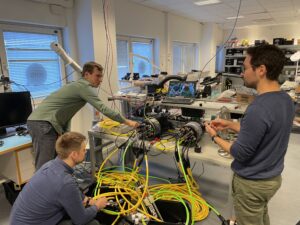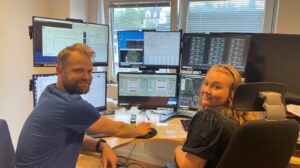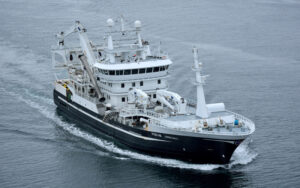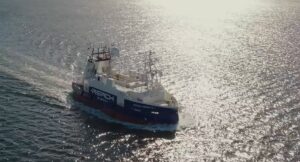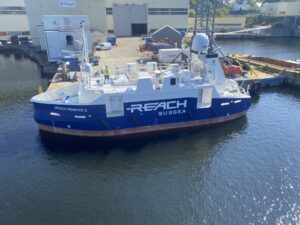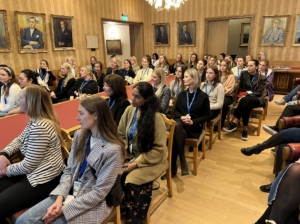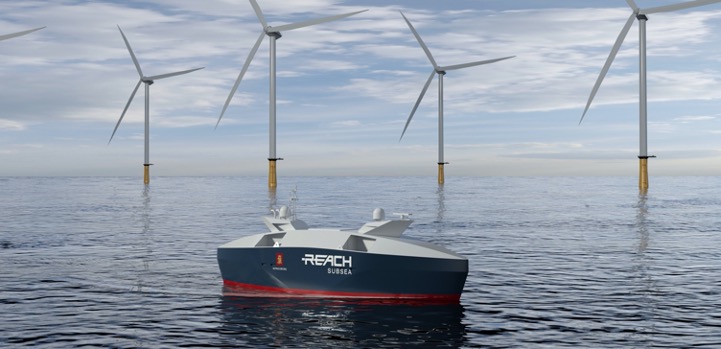Reach Subsea ASA (Reach) welcomes the announcement that Sletta, Smedasundet and Karmsundet in the Haugalandet district of western Norway has been granted official status as a national test site for remote-controlled technologies and unmanned vessels by the Norwegian Coastal Administration and the Norwegian Maritime Authority.
The establishment of a test site for world-leading technology for the maritime industries will strengthen the collaboration between the private sector, the authorities, academia and research communities, and provide a supportive, innovative subsea environment for the Reach Remote project.
Reach Subsea is one of 19 members of the NCE Maritime CleanTech cluster organization, which has led the work to establish the test site. The group is a public-private partnership initiative that will collaborate on the development of new clean, energy-efficient maritime technologies, thereby positioning Norway to take a leading role in autonomous maritime transport and operations solutions.
“The establishment of Haugalandet as a national test site for new maritime technologies and unmanned vessels is very good news for the Reach Remote project. Developing pioneering new technology requires extensive testing, serious verification and certification that carries international recognition. This is now in place through today’s announcement,” says Jostein Alendal, CEO of Reach Subsea.
Reach Remote, which is carried out in cooperation with Kongsberg Maritime AS and Massterly AS and supported by a grant from Innovation Norway, aims to develop future-proof, sustainable solutions for subsea services. The first stage of the project is to introduce Unmanned Surface Vehicles (USVs) dedicated to survey, inspection, and light repair projects. The USVs will serve as mobile power banks, data centres and communication modules for underwater ROVs (Remotely Operated Vehicles), with both the USVs and ROVs operated from an onshore control centre. Reach Subsea’s goal was to be in the market with the first two USVs in 2022, with the ambition of providing a full portfolio of subsea services from a low-emission, cost-effective remote and autonomous fleet by 2025. Due to global supply chain disruptions, the commissioning of the first USVs has been postponed and the first vehicles are expected to be launched in 2023.
“Global supply chains have experienced major disruptions in the past year, initiated by the pandemic, and we have chosen to dedicate more time to preparatory work prior to commissioning the USVs, to ensure that we get it right from the start. Unmanned and carbon neutral offshore operations is a bold ambition, but with the right industrial partnerships and regulatory actions to support the rising market momentum, we strongly believe that we can unlock this opportunity,” says Alendal.
The low-emission, cost-effective subsea services which will be offered by Reach Remote are of interest to offshore wind farm operators and oil and gas asset owners. Reach Remote will be an enabler, building on framework agreements already in place to position Reach as a preferred supplier of survey, inspection, and light repair services to the fast-growing offshore wind industry. It will also be key to providing services to other markets, such as aquaculture, subsea mining, and environmental surveillance.
“Since Reach Remote was publicly launched earlier this year, we have experienced great interest from clients and potential partners across the world. There are several potential industrial partners we are in dialogue with who wish to be part of Reach Remote, and who could contribute to the funding and commercialization of the project. While still in the early stages, these dialogues form part of evaluating which financing strategy for Reach Remote is in the best interest of the company and its shareholders,” Alendal added. Currently, Reach provides its subsea services from six vessels. A typical Reach project today will involve some 30-50 personnel onboard a subsea vessel operating under strict HSEQ regimes. With Reach Remote, the same project can be executed with a much smaller, more fuel-efficient vessel, a more than 90% reduction in CO2 and NOx emissions and one third of the personnel, who will be located onshore without exposure to offshore operational risks.
Do you want to know more? Contact us
